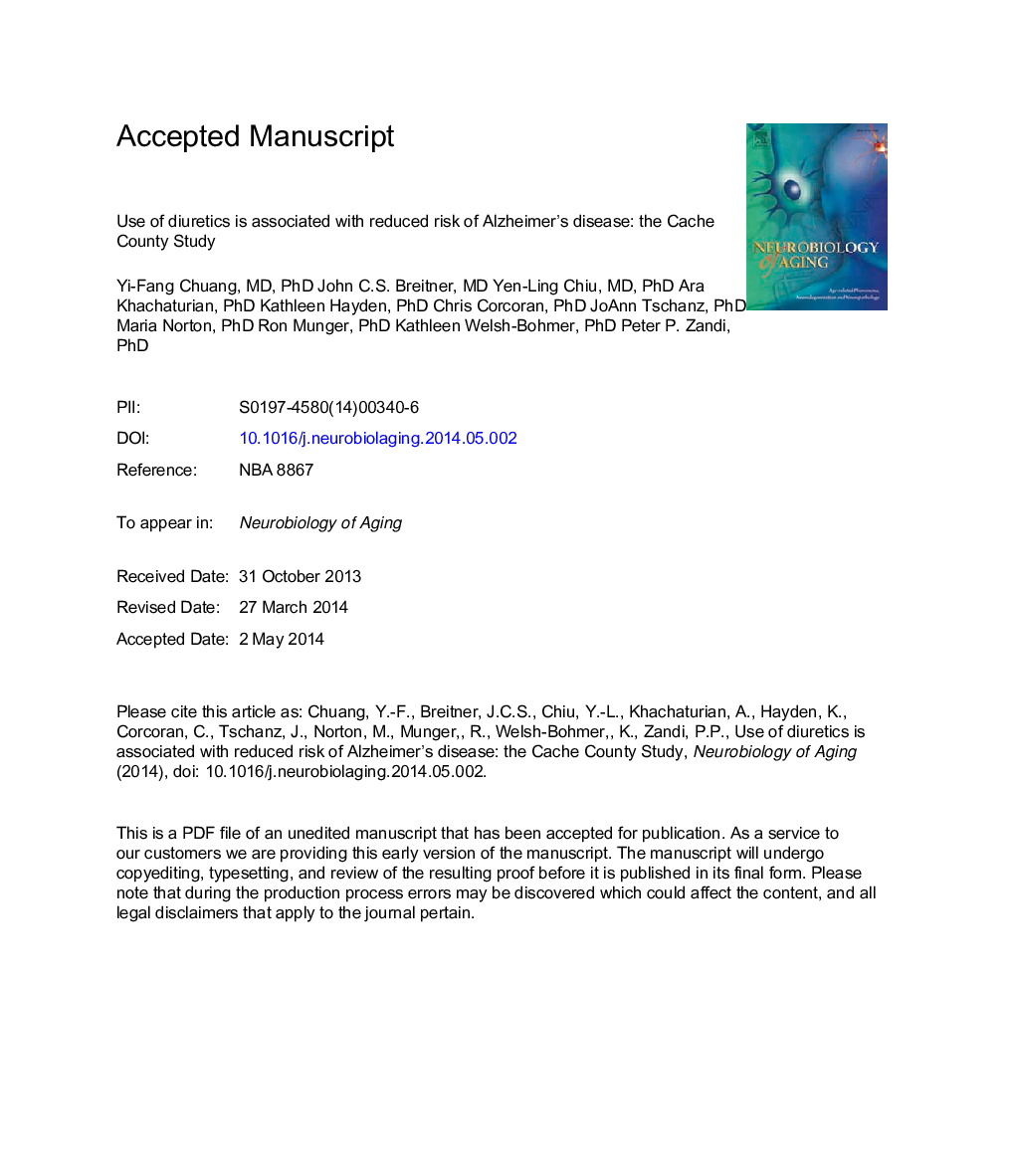| Article ID | Journal | Published Year | Pages | File Type |
|---|---|---|---|---|
| 6805350 | Neurobiology of Aging | 2014 | 28 Pages |
Abstract
Although the use of antihypertensive medications has been associated with reduced risk of Alzheimer's disease (AD), it remains unclear which class provides the most benefit. The Cache County Study of Memory Health and Aging is a prospective longitudinal cohort study of dementing illnesses among the elderly population of Cache County, Utah. Using waves I to IV data of the Cache County Study, 3417 participants had a mean of 7.1 years of follow-up. Time-varying use of antihypertensive medications including different class of diuretics, angiotensin converting enzyme inhibitors, β-blockers, and calcium channel blockers was used to predict the incidence of AD using Cox proportional hazards analyses. During follow-up, 325 AD cases were ascertained with a total of 23,590 person-years. Use of any antihypertensive medication was associated with lower incidence of AD (adjusted hazard ratio [aHR], 0.77; 95% confidence interval [CI], 0.61-0.97). Among different classes of antihypertensive medications, thiazide (aHR, 0.7; 95% CI, 0.53-0.93), and potassium-sparing diuretics (aHR, 0.69; 95% CI, 0.48-0.99) were associated with the greatest reduction of AD risk. Thiazide and potassium-sparing diuretics were associated with decreased risk of AD. The inverse association of potassium-sparing diuretics confirms an earlier finding in this cohort, now with longer follow-up, and merits further investigation.
Related Topics
Life Sciences
Biochemistry, Genetics and Molecular Biology
Ageing
Authors
Yi-Fang Chuang, John C.S. Breitner, Yen-Ling Chiu, Ara Khachaturian, Kathleen Hayden, Chris Corcoran, JoAnn Tschanz, Maria Norton, Ron Munger, Kathleen Welsh-Bohmer, Peter P. Zandi, For the Cache County Investigators For the Cache County Investigators,
